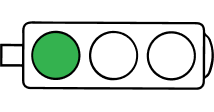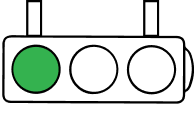Do You Have the Right Tools?
I am not much of a handyman. I know some skilled carpenters and some gifted mechanics, and I am neither of those things. My skills are limited to being able to fix grills and toilets. Sort of a weird combination, and I am not sure how I developed those skills and so little else as a handyman, but at least I’ve discovered my unique niche.
I am, however, a maximum effort person. You need some old-fashioned manual labor, someone to demolish a room before it gets redone or a person to perform virtually any type of landscaping, I’m your guy.
Anyway, I was recently thinking about my limited handyman skills, and the effort I am willing to put forth regardless of those limited skills, when I was looking through my toolbox and being disappointed, once again, to discover that I did not have the tools I needed for the task I was working on.
Whether I am attempting to work on something around the house, answer a tough parent related question, or put an efficient strategy together at work, I often first think about what I don’t know or cannot do on my own. Sometimes, this causes me to focus more on my shortcomings and, if I’m not careful, I can get a little down on myself.
I push through these thoughts by being determined to use what I don’t know or can’t do by myself as a positive part of my decision making. It is realistic and healthy to be aware of what you don’t know because that realization leads to an opportunity for you to learn and grow. If you know what you don’t know, the next logical question is what you are going to do about it?
My progression through these thoughts and questions leads me to the tools that I need to get the job done. Using my example of a task I am trying to complete at home, my toolbox is limited, and I will very likely have to figure out not only what tools I need, but where I am going to find them and how to use them. Expanding this example to the work that I do as part of my career, however, leads me to a much broader definition of the tools that are available to me.
I am certainly more knowledgeable and capable in my career work than I am in the work I try to accomplish around the house. Yes, I have taken more time learning about my work and developing my expertise than I have as a handyman. Yes, I am more motivated by the work I do for my career and my skill set is better suited for my career work. It is how I make a living and provide for my family, which is about all the motivation I need to do everything I can to maximize the value of my career work and related effort.
All of that is true, but it only gets me part of the way toward the level of success I need to regularly achieve to excel in my career. It’s the tools that I have access to and have learned how to use that help me to continue to grow and learn and excel.
Fortunately, I learned early on that I would need to rely on a diverse, broad set of tools to get to where I wanted to be. I figured out that quality leadership is much more about an ability to identify strong resources and great people than it is about becoming an expert in every aspect of the organization you want to lead. That becomes even more true, the larger the organization is and the more complex your objectives are.
As a handyman, what I can accomplish is limited by my lack of expertise and the tools I have on hand. In my career, and as a leader, my knowledge of what I don’t know leads me to an unlimited set of tools as defined by business partners who are experts in their fields, employees who are dedicated to a cause greater than themselves, robust information technology, sound policies, best practices…the list goes on and on!
I am a reliable manual laborer because I am willing to put forth a strong effort and my effort is something that I have 100% control over. I am every bit as determined to maximize my effort in my career, but my individual effort as a leader will only get me so far. The goals that I set and the objectives we have as an organization require a collaborative effort by everyone on the team, of which my direct role is a small part.
The point is this. Regardless of the task at hand, big or small, the right tools exist, and it is up to you to determine what tools you need and how you will procure them.
The first step to take toward ensuring you have the right tools is to stop judging your success based on what you can do on your own. Embrace the idea that your knowledge and effort are important aspects of completing the job at hand, but don’t limit the extent of your accomplishment to those things. It is equally important to embrace what you don’t know and what you are not capable of doing on your own with an open mind and a willingness to identify and find the tools you need to complete more tasks and achieve greater success.
My experience has taught me that there is a direct correlation to broader, more sustainable success when you are able to achieve your own balance of your knowledge and effort with who and what you can work with to get to where you ultimately want to be as a leader, parent, friend, or team member.
The more you commit to learning and growing as a person, the stronger you will be. The more you surround yourself with skilled professionals, subject matter experts, capable technology, and sound decision makers, also known collectively as the right tools, the more you will accomplish.
So, what don’t you know and what tools do you need to figure it out?
Scott Arney
Chief Executive Officer
Chicago Patrolmen’s Federal Credit Union






